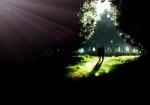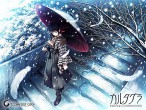
关于疫情的中考英语作文必背句子【一】
第三次课: 分词在句子中的用法
教学目标: 使学生初步了解及在句子使用分词
教学内容:
一、 动名词及不定式作业讲解
二、分词
现在分词和过去分词两种。
作为谓语,现在分词和be 一起构成进行时;过去分词和be一起构成被动语态,和have一起构成完成时。
例如:
I am reading a novel by Maupassant. 我正在看一本莫泊桑写的小说。(现在分词和be 一起表示主语正在进行的动作。)
Mr. Robinson has drunk five glasses of wine already. 鲁宾逊先生已经喝了五杯酒了。(过去分词和have 一起表示主语已经完成的动作。)
The gold fish bowl was broken by Xiao Tao just now. 金鱼缸刚才被小陶打破了。(过去分词和be 一起表示主语是动作的承受者。)
作为非谓语形式,分词可用作形容词和副词,在句子中充当定语、表语、补语和状语。但它仍保持动词的一般特征,可以有自己的宾语和状语。分词和自己的宾语、状语构成分词短语。 现在分词有一般式和完成式。它的一般式表示和谓语动词所表示的动作同时发生的行为或存在的状态;它的完成式(having + 过去分词)表示在谓语动词所表示的动作之前发生的动作或存在的状态。
现在分词有主动语态和被动语态(being + 过去分词。
过去分词只有一般式,表示在谓语动词所表示的动作之前发生的动作。过去分词(及物动词)本身可以表示被动的含义,因而没有别的被动形式。
例如:
Having failed three times, he didn’t want to try again. (=As he had failed three times, he didn’t want to try again. 他失败了三次,不想再干了。(having failed 表示发生在前的动作)
Walking along the sands, Crusoe saw in the sand the mark of a man’s foot. (=While he was walking along the sands, Crusoe? 克鲁索沿着沙滩走的时候,看见沙上有人的脚印。(walking 表示同时发生的动作)
The question being discussed seems important. (=The question is being discussed. It seems important. 正在讨论的问题似乎很重要。
The old days are gone. 旧时代一去不复返了。(gone 表示完成的状态)
I had my hair cut yesterday. 我昨天理发了。(cut 是及物动词的过去分词,表示“被人理发”。) 分词的否定形式是在分词短语前面加上not, never等否定词构成。
例如:
Not fearing the fire, the child touched and got a finger burnt. 小孩儿不知道怕火,用手去摸,把手指烫了。
Not knowing how to find the subway, I asked a policeman for help. 我不知道怎样找到地铁,就去找警察帮忙。
(一)现在分词和过去分词的区别
(1)在语态上现在分词表示主动的意思,表示它所修饰的人或物的行为;及物动词的过去分词表示被动的意思,表示它所修饰的人或物是动作的承受者。换言之,现在分词是它修饰
的成分所作出的动作,过去分词是它修饰的成分所承受的动作。
例如:
convincing facts 有说服力的事实 / convinced audience 被说服了的听众
the exploiting class 剥削阶级 / the exploited class被剥削阶级
a frightening dog一条让人害怕的狗 / a frightened dog一条被吓坏了的狗
driving gears主动齿轮 / driven gears从动齿轮
(2)在时间上,现在分词往往表示动作正在进行,过去分词表示动作已完成。
例如:
the rising sun (正在升起的太阳 / the risen sun(升起的太阳)
the falling rain(正在下的雨)/ the fallen leaves(落下的树叶)
stolen money(被盗的钱/偷来的钱)/ill-gotten wealth(不义之财)
a high-flying kite(高飞的风筝)
再看一些例子:
boiling water 沸腾的水/boiled water 开水/developing countries 发展中国家/developed countries 发达国家/an exciting story 令人激动的故事/ excited people 激动的人们
(2)在时间上,现在分词往往表示动作正在进行,过去分词表示动作已完成。
再看一些例子:
surprising news令人惊讶的消息/a surprised man受惊吓的人/an inspiring leader具有号召力的领袖/the inspired soldiers受到鼓舞的士兵/a delighted speech令人高兴的演说/the delighted audience(感到高兴的听众/a moving film动人的电影/the moved children受到感到的孩子们/a box containing tea装茶叶的盒子/the tea contained in a box装在盒里的茶叶/ falling snow正在下的雪/fallen snow box落在地上的雪
(3)做表语时的不同。现在分词做表语表示主语所具有的特征,意思是“令人如何”。过去分词多表示主语所处的状态,意思是“感到如何”。
例如:
His lecture is disappointing。I’m disappointed。他的演讲令人失望。我感到失望。
We are surprised to hear the news。The news is surprising。我们听到那消息吃了一惊。那消息令人吃惊。
The situation is encouraging。 We’re encouraged。形式使人鼓舞。我们感到鼓舞。
常用的还有:amusing/amused,astonishing/astonished,disappointing/disappointed,exciting/excited,frightening/frightened,interesting interested,moving/moved, relaxing/relaxed,satisfying/satisfied,shocking/shocked,surprising/surprised,terrifying/terrified,tiring/tired,worrying/worried等等。
(4)做状语的区别,分词短语在句中可做时间、原因、方式、伴随状语。现在分词的动作和谓语动作同时或几乎同时发生、意思是主动的。而过去分词的动作在谓语动作之前发生、意思是被动的。
例如:
Seeing nobody at home,she decided to leave them a note。看到没人在家,她决定给他们留个条。(主动意义,几乎同时
The secretary worked late into the night,preparing a speech for the president。秘书工作到晚上很晚,给总统准备一篇演说。(主动意义,同时
Tired of the noise,he closed the window。对噪音感到厌烦,所以他把窗户关上。(被动意义,
在谓语之前
Deeply moved,she thanked me again and again。她深深地受了感动,再三谢我。(被动意义,在谓语之前
Persuade by my mother,she gladly went there alone。在我母亲劝说下,她才高兴地独自去那里。(被动意义,在谓语之前
如果现在分词的动作在谓语动作之前发生,现在分词要用完成形式,但意思仍然是主动的。 例如:
Having watered the vegetables,they began to pick up the Apples。=After they had watered the vegetables,they began to pick up the apples。他们浇完了蔬菜之后就开始摘苹果。 Having finished the work,he packed his tools and left。完工后,他收拾起工具走了。 分词做状语时,前面可用连词或介词。
例如:
After eating my dinner quickly,I went to see Jim off。我赶快吃过晚饭就去给吉姆送行。 Though built before the Second World War,the engine is still in good condition。尽管是在二战以前建的,这引擎仍然处于良好状态。
Unless paying by credit card,please pay in cash。如果不用信用卡付款,请用现金付。 Tom will never do this unless compelled。汤姆永远也不会干这种事,除非被逼无奈。 She’s been quite different since coming back from America。从美国回来后,她大变了。
(二)用法
1.作定语。作定语的分词通常放在被修饰的名词之前。如果被修饰的词是something,anything,everything,nothing等,则分词放在这些词之后。分词短语通常放在被修饰的名词之后。
例如:
This is an interesting book。(=This is a book。It is interesting。这是一本有趣的书。
There is something interesting in the news。(=There is something in the news。 It is interesting。消息中有些有趣的事。
The man sitting by the window is our math teacher。(=The man who is sitting by the window is our math teacher。靠窗户坐着的那个人是我们的数学老师
The machine run by the old worker is made in Shanghai。(=The machine that is run by the old worker is made in Shanghai。那位老工人开的机器是上海造的。
Most of students singing were girls。(=Most of the students who were singing?唱歌的学生多数是女生。
Many of the villagers questioned refused to answer。(=Many of the villagers who were questioned?被问的许多村里人都拒绝。
注意:(1)分词作定语与动名词作定语的区别:
分词和它所修饰的名词有逻辑上的主、谓关系。动名词则没有这种关系,而表示它所修饰的词的用途或有关动作。
现在分词 动名词
A sleeping child(a child who is sleeping正在睡觉的孩子 A sleeping car(a car for sleeping卧车
A flying bird(a bird that is flying飞鸟 A flying course(a course for flying飞行课程
A swimming girl(a girl who is swimming游泳的女孩 A swimming pool(a pool for swimming游泳池
The running water(the water that is running流水 The running track(the track for running跑道 现在分词和它所修饰的名词都要重读,动名词所修饰的名词则不必重读。
(2)现在分词作定语时,它表示动作正在进行或与谓语动词所表示的动作同时发生(或差不多同时发生。
例如:
Who is the boy dancing over there?在那儿跳舞的少年是谁呀?
The girls swimming in the sea were in danger。 在海里游泳的姑娘们有危险。
如果两个动作在时间上有先后,一般不能用现在分词作定语,而往往用主从复合句结构。 例如:
The man who has gone to Shanghai will be back again。到上海去的那个人会回来的。
The teacher wants to talk to the students who smashed the windows。老师要找打破了窗子的那个学生谈话。
(3)be的现在分词being不能用作定语(可用作状语或被动语态中的助动词。表示这种概念时,也用主从复合句结构。
例如:
He has a brother who is a worker。他有一个当工人的兄弟。
2、作状语。分词和分词短语作状语时,可以表示时间、原因、行为方式等意义。表示时间和原因的分词短语相当于对应的状语从句。
例如:
Seeing the teacher entering the room,the students stood up。(=When the students saw the teacher entering the room,They stood up。学生们看见老师走进房间,都站了起来。 (时间
Heated,the Metal expands。 (=The metal expands if /when it is heated。金属受热而膨胀。(条件、时间
Being excited,I couldn’t go to sleep。(=As I was excited ,I couldn’t go to sleep。我兴奋得睡不着觉。(原因
Being a student,he was interested in sports。(=As he was a student,he was interested in sports。 他是个学生,所以对体育运动感兴趣。(原因
Inspired by Dr.Yang’s speech,Li Hua and his classmates decided to study physics harder。(=As they were inspired by Dr.Yang’s speech,Li Hua and his classmates decided to study physics harder。李华和他的同学们受到杨博士讲话的鼓舞,决定更加努力学习物理。 (原因 The children went away laughing。=The children went away。They laughed as they went。孩子们笑着走开了。(行为方式
The professor stood there,surrounded by many students。(=The professor stood there。He was surrounded by many students。教授站在那里,许多学生围着他。(行为方式
While reading the newspaper,father nodded from time to time。(=While he was reading the newspaper,father nodded from time to time。看报时,父亲不时地点头。(时间(分词前,可加表示时间的连词while或when。
3、作宾语补足语。
例如:
Can you get the machine going again?你能使机器再动起来吗?
You should have your hair cut。你该理发了。
I saw him coming last night。我昨天晚上看见他来了。
4、作表语。
例如:
The film is very moving。这部影片很感人。
Your homework is well done。你的作业做得好。
The visitors looked surprised.参观者看上去很惊讶。
The boys were seen walking on the grass。有人看见孩子们在草地上散步。
5、作句子独立成分(分词有自己的逻辑主语时,称为独立主格结构。)
例如:
Flags flying,the army men marched in the streets。旗帜飘扬,军队在街上行进。
All his ribs broken,he lay half dead。他的肋骨全部折断,半不活地躺着。
分词(短语作状语时,其逻辑主语必须与句子的主语一致。如果不一致,必须用独立主格结构来表示,也就是在分词前面加上它的逻辑主语。
My wife had a long talk with Sally, explaining why she didn’t want the children to play together我妻子与莎莉谈了很长时间,解释她为什么不想让孩子们在一起玩。(现在分词explaining是句子主语my wife做的动作,它们之间是主动关系
Given more attention,the trees could have grown better。如果对这些树多关心一些,它们本来会长得更好。(过去分词given表示的动作是句子主语the trees承受的动作,它们之间是被动关系
We explored the caves,Peter acting as guide。我们到那山洞探险,彼得做向导。 (独立主格 The train having gone,we had to wait another day。分词短语做状语时,前面可以加上连词或介词,但是分词短语和句子之间不能用并列连词(如but,and,因为并列连词接的是两个并列成分,而分词短语只是全句的一个状语部分。分词和主句之间可用逗号。
例如:
误:Having been told many times,but he still couldn’t understand it。
正:He was told many times, but he still couldn’t understand it。
注意:(1)分词作状语时,逻辑主语即句子的主语;否则要用从句或独立主格结构来表示。 例如:
Looking out of the window,I saw lots of people there。(=When I looked out of the window,I saw lots of people there。
我往窗外一看,看见那儿有许多人。 (looking out of the window的逻辑主语,就是句子的主语I。
(2)在see,hear,watch,notice等动词后,用动词不定式作宾语补语,通常表示(强调动作从开始到结束的全过程。如果用现在分词作宾语补语,则通常表示动作正在进行。 例如:
We sat two hours and watched the teacher make the experiment。我们坐了两个小时,看老师做实验。(两小时一直在看老师做实验
We passed by the classroom and saw the teacher making the experiment。我们走过教室,看见老师在做实验。(只是在走过教宰的一刹那间,看见老师正存做实验
I saw him enter the room, unlock a drawer, take out a document, photograph it and put it back。我看见他走进房间,打开抽屉,拿出一份文件,拍了照又放回去(表示一个接一个的一系列动作的全过程时,用动词不定式。
关于疫情的中考英语作文必背句子【二】
随着时光的流逝,我那既天真又有趣的童年也悄悄地走开了。然而充满童趣的一幕幕已在我记忆的脑海里定格着。
记得那是我6岁的时候,我看见妈妈买回来一大袋的香瓜子。当妈妈放下袋子的时候,我便像离弦的箭一样跑到袋子的前面,把袋子撕地七零八落,取出了一包香瓜子。当我吃着香喷喷的瓜子时,不禁问妈妈:“妈妈,这些这么香的瓜子从哪儿得到的呢?”妈妈耐心地对我说:“这些瓜子是由向日葵那里得来的,只要种下一颗花籽,就能种出许多美味的香瓜子。”我听着听着就流下了口水,脑海中并想出了一个计划。
我把一包香瓜子全种在地里,浇了许多桶水。可是一个星期过去了,也还没看见香瓜子长出来。我急得像热锅上的蚂蚁。于是,我就把香瓜子全挖了出来。挖出来一看,香瓜子不但没有长出鲜嫩的小花苗,反而上面还有许多小蚯蚓。我就把这件奇怪的事告诉了全家人,家人们笑得前仰后翻,我不知道怎么回事,就带着疑惑的心情问妈妈:“妈妈,大家为什么要笑啊?”妈妈笑着说:“儿子,你拿煮熟的香瓜子去种,当然种不出向日葵,只有生的香瓜子才能种出向日葵,不信你就试一试。”在妈妈的帮助下,我种的向日葵终于长出了小花苗。
这件事,虽然已经过去了很久,但是这件童年趣事像天边的一颗璀璨的星星,永远留在我心中的星空上。
关于疫情的中考英语作文必背句子【三】
1. Nancy is too young to dress herself.
Nancy is not _____ _____ to dress herself.
2. My watch doesn't work well.
There is ____ _____ _______ my watch.
3. Jane doesn't go to work by bus any longer.
Jane ____ _____ _____ to work by bus.
4. It took Mary two weeks to prepare for the exam.
Mary _____two weeks____ ______ for the exam.
5. It seems that they have known each other.
They seem to _____ _____ each other.
6. "My grandpa doesn't like coffee or coke" said Bob
Bob said that _____grandpa liked _____coffee _____coke.
7. Cao Fei joined the League three years ago.
Cao Fei _____ ____ _____ the League for three years.
8. I prefer walking there to going by bus.
I prefer to walk there ____ _____ going by bus.
9. -Thank you very much. -You're welcome.
- ____ a lot. -Not at____ .
10. Kitty does well in English.
Kitty ____ ____ ____ English.
11. They realized Hainan was a beautiful place after they reached there.
They____ realize Hainan was a beautiful place_____ they reached there.
12. We will have to finish the work hardly if you don't help us. We can't finish the work _____ _____ ______
13. My dictionary isn't so thick as yours.
My dictionary is _____ than yours.
14. Could you tell me where the East Street Hospital is? Excuse me, ____ is the _____ to the East Street Hospital?
15. The book is exciting to read.
It is ____ _____ read the book.
16. Jack's mother asked him, "Have you packed your things?" Jack's mother asked him ____ he ____ packed his things.
17. She likes singing better than dancing. She ____ singing ____ dancing.
18. Remember to ring me up as soon as you get to Nanjing Make ____ to give me a ring as soon as you _____ Nanjing.
19. They couldn't catch the train because of the heavy traffic. The heital?
15. The book is exciting to read.
It is ____ _____ read the book.
16. Jack's mother asked him, "Have you packed your things?" Jack's mother asked him ____ he ____ packed his things.
17. She likes singing better than dancing. She ____ singing ____ dancing.
18. Remember to ring me up as soon as you get to Nanjing Make ____ to give me a ring as soon as you _____ Nanjing.
19. They couldn't catch the train because of the heavy traffic. The heavy traffic _____ them from _____ the train.
20. My brother has been away from home for two days.
My brother _____ home two days _____ .
21. Li Lei decided to move to Canada when he was thirty.
Li Lei made a _____ to move to Canada at the _____ of thirty.
22. Jim was too careless to pass the exam last term.
Jim was not_____ _____ to pass the exam last term.
23. If you don't hurry up, you can't catch the train.
Hurry up, _____ you may _____ the train.
24. Yang Li wei said to us, "I'm going to visit your school tomorrow. " We were all pleased.
We were all pleased when we heard Yang Li wei_____ visit_____ school the next day.
25. This is the most interesting film I have ever seen. I have ____seen _____ an interesting film before.
26. I was late for school because of the traffic accident. The traffic accident _____ me _____ getting to school on time.
关于疫情的中考英语作文必背句子【四】
我的童年是多姿多彩的,有喜,有怒,有哀有乐,那些事情有时很可笑,有时又很无奈。
我的小时候,什么都不知道,主要是哭,学会走路的时候乱跑,到早教班也是玩儿,好不容易学会了一个“大"字,还是我哥教会我的。我小时候还经常逃课,逃午睡,躲到男厕所里不出来,由于大部分老师都是女性,所以我们总能逃过午睡。现在想想,我都不知道那些时间我是怎么耗过去的。
有次,妈妈因为当时的我还够不着马桶,就给我买了个尿盆回来,绿色的还泛着点黄色,刚拿回来的时候我还不知道这是干什么用的,好奇的这边瞧瞧那边看看,端详了一阵后,举起了尿盆,妈妈不知道我又在搞什么怪也只是看着我不为所动。只见我”咣“的一下把尿盆我的头上,当帽子戴了!我那时候头还很小,如果按我现在的头围把尿盆往头上扣,应该像个西瓜太郎,但像我原来那么小的头,尿盆往上一放把脸也给盖住了,成了四不像,妈妈看见了”扑哧“笑出了声,看不下去了,过来纠正了我,我乖乖的往里面撒尿,尿完之后把尿到了又扣在了头上,一点儿也不长记性。
我童年的事,常常有一些滑稽的举动,但是在家长看来它是可爱的,在现在的我看来是可笑的,我一些早教班的老师对我的逃课现象当然是可气的。
小时候的我就是这样:可爱,可笑又可气。
关于疫情的中考英语作文必背句子【五】
我的童年有许多趣事,每一件事都像一个果子。有些果子已经掉落了,唯有一个果子又红又大,一直挂在树上。今天,我就把它摘下来,让大家尝尝。
小时候,妈妈经常带我去姥姥家。姥姥的邻居家有一条非常凶猛的狗,每次路过他家门口时,它总是冲着我们凶狠地叫几声。这一次,哥哥带我出去玩的时候,没有听到狗叫声,我感到很奇怪。我悄悄地来到邻居家门口,趴在门缝里一看,哈哈哈,它被主人拴在柱子上了。我一阵狂喜:看你平时凶巴巴的样子,这回看看我的厉害吧。
我转身去商店买了一盒划炮,跑回来,轻轻地把门推开,点着一个扔在它院子里。它以为我给它什么好吃的,乐颠颠地跑了过来,刚跑到划炮跟前,只听“砰”一声响,它“嗷”的一声哀叫,向后退了几步,掉头飞快地跑回了狗窝。看它狼狈的样子,我得意地笑出了声。我还不过瘾,大胆地往前走了走,又点了一个划炮扔在窝前。它聪明了许多,蹲在窝里不敢上前,嘴里“哼”“哼”地叫着,好像在说:“别再惹我了,别再惹我了。”
看见狗那可怜的样子,我起了恻隐之心,又一想起平时它那凶狠的样子,我又一次拿起了划炮点着。我连续扔了好几个,越扔越过瘾,干脆把剩下的全都点着扔进窝里。噼里啪啦的响声把狗吓坏了,它被激怒了,一下子从狗窝里蹿出来。使劲地挣绳子,边挣边狂叫。我没有发现危险的来临,还拿手里的空盒子逗狗呢。哥哥见势不妙,拉起我就跑。在我们刚刚关上门的时候,狗已经挣脱绳子冲到了姥姥家的门口,锋利的爪子把门挠得“咯哧”“咯哧”响。只差一步,太悬了,吓得我出了一身冷汗。
这件事过去很多年了,可这只果子的味道一直在我心里不时地品味,从那时起,我再也不去招惹狗了。
关于疫情的中考英语作文必背句子【六】
童年像万花筒,五彩缤纷,一件件往事随风而流逝,变得模糊不清。但是,有一件事却深深地印在我的脑海里。
那是发生在一个炎热的夏日。
从前,我总是看见妈妈洗米。她总是先量米,再放水进窝中,重复一遍,就放下煤炉上。刚学会用煤炉的
我好想试一试哦。
一天,妈妈有事要做,又要做饭给我吃,忙得不可开交,我便自告奋勇地去做饭了,妈妈答应后便出家门办事了。我学着妈妈的样子洗起米来,我洗了一会。咦,水渐渐变白了,然后,我继续洗下去。啊,是牛奶呀!我高兴得得意忘形了,心想:我成了伟大的发明家了!我小心翼翼地拿来个碗,把“牛奶”装了起来。再把饭放上煤炉上,煮好。就拿起“牛奶”津津有味地喝起来,怎么牛奶没有味道的呢?哦,可能是没有味道的那种吧!我毫无顾虑地喝起来,当我喝了一半时,想到了妈妈今天应该很累,还没吃东西吧?我把“牛奶”留给妈妈喝,她一定夸我是个好孩子。我暗暗从心里笑起来。
不久,妈妈就回来了,我捧着“牛奶”,对她说:“妈妈,喝牛奶吧!”妈妈疑惑不解:家里什么时候买了牛奶?接过牛奶,她非常眼利看出来了。她捂着肚子,笑得前俯后仰,说:“这是米水,不能喝呀!”
童年往事总是多姿多彩、美不胜收,让人回味无穷。每当我想起,都会情不自禁地笑起来。童年中充满了快乐,快乐中有着美好的童年。但是,它却如水般地流去了,留下的只是回忆。
















